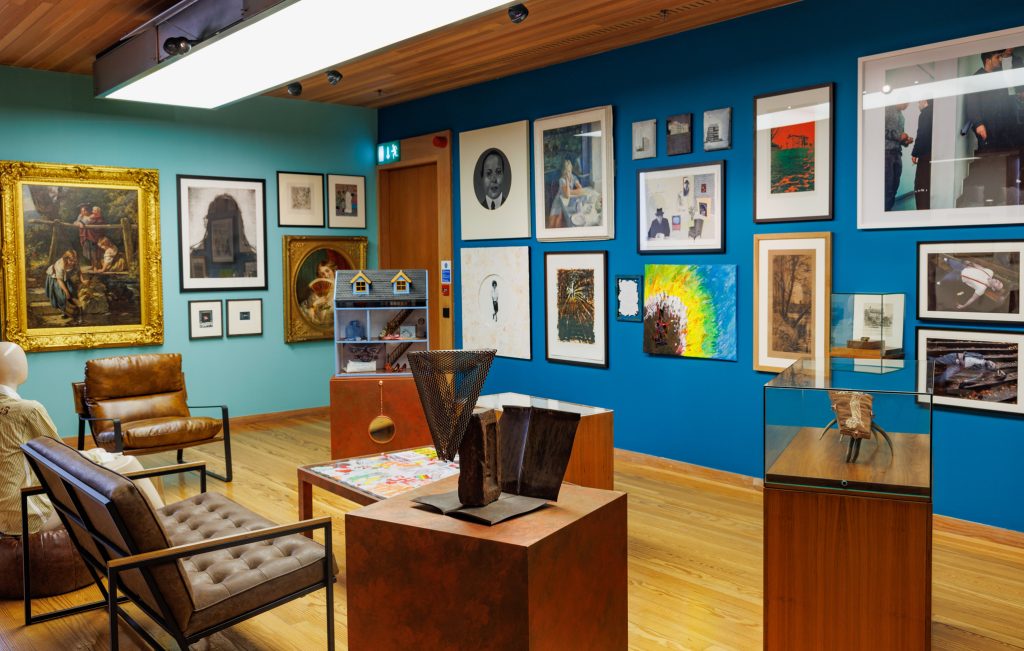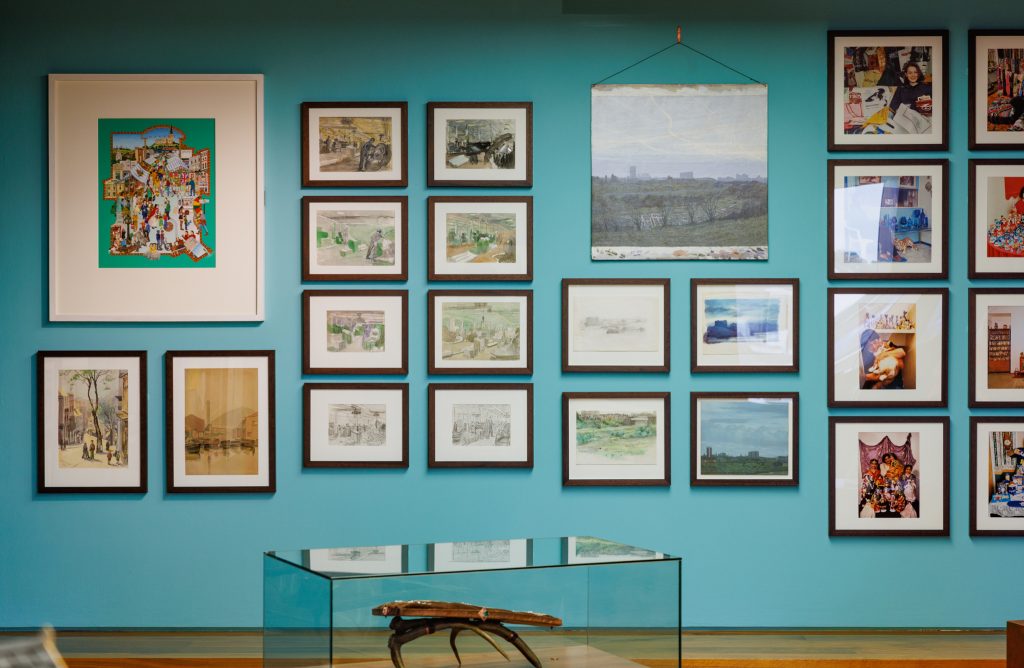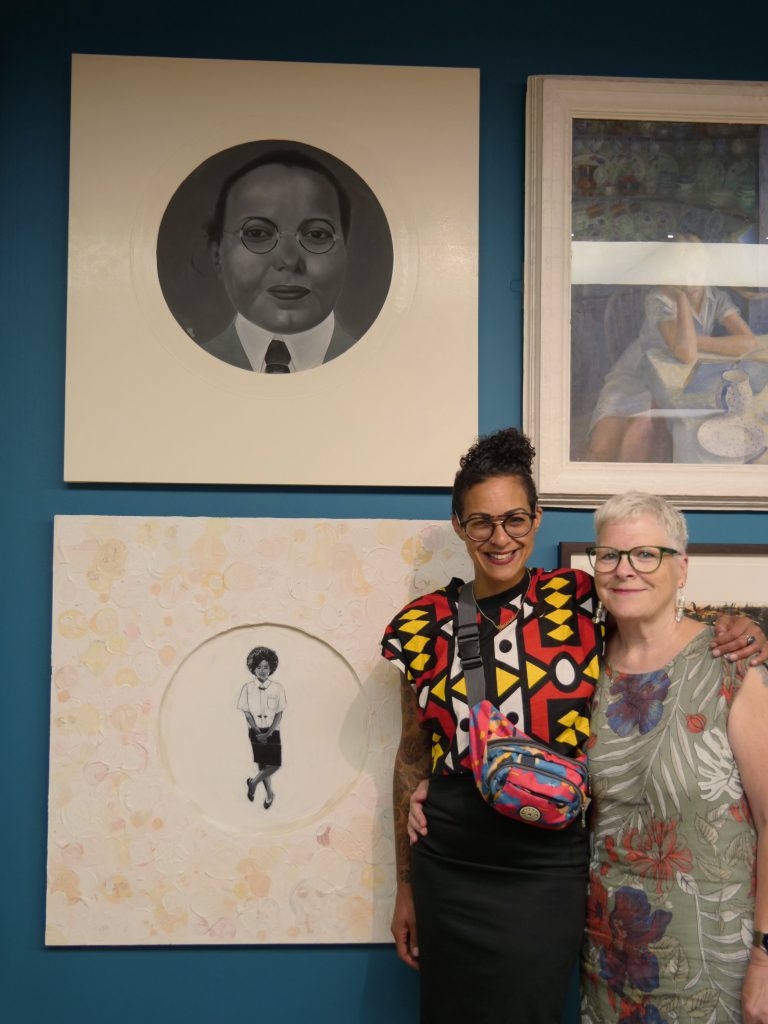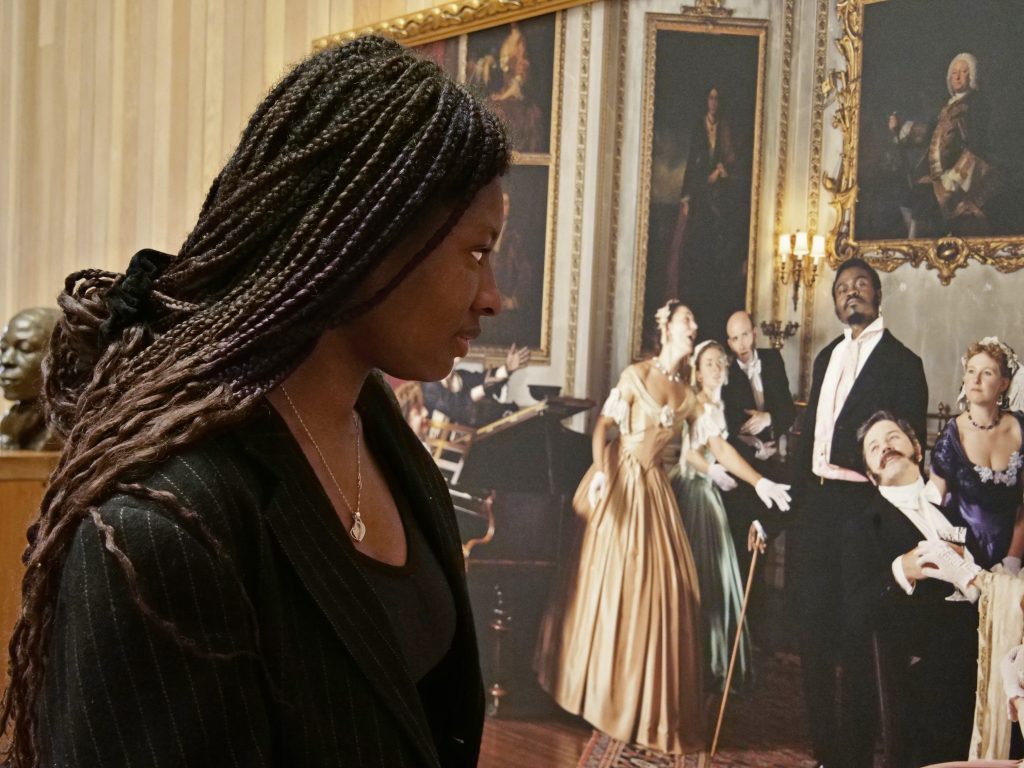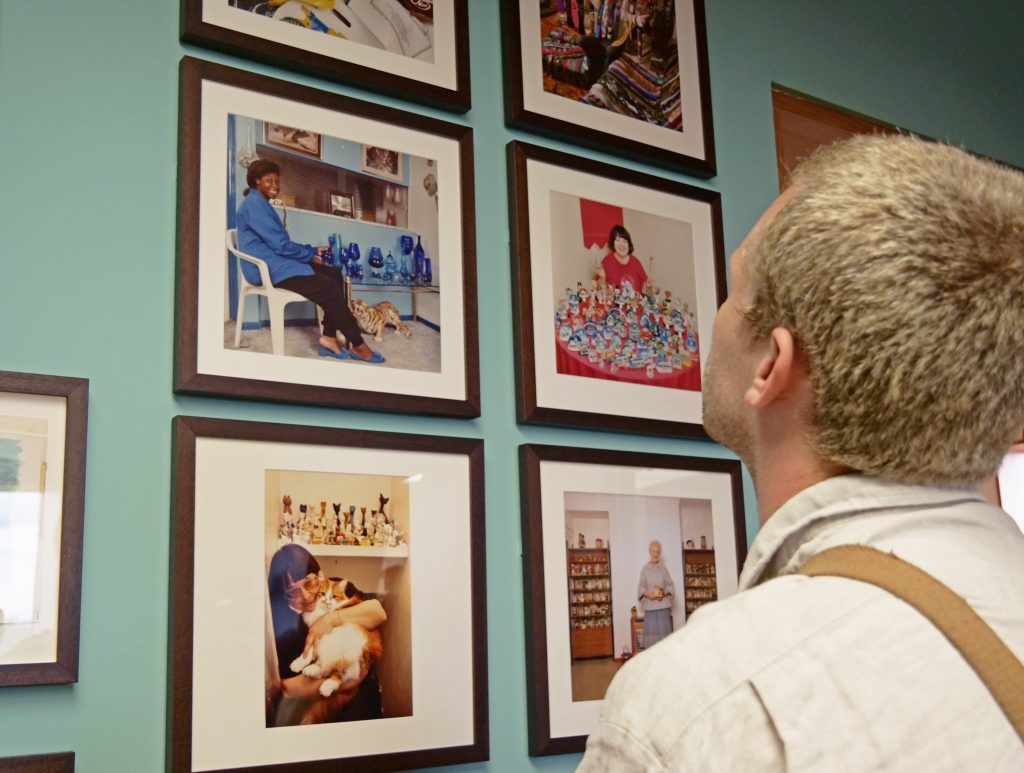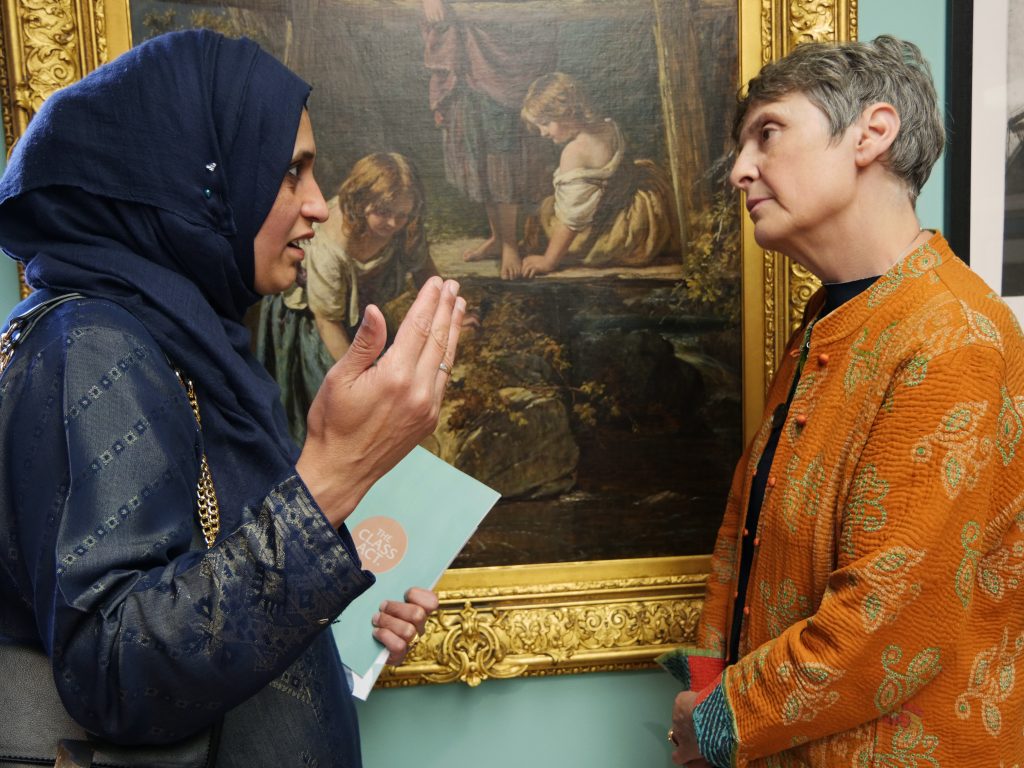Pride&Privilege
at The Class Act
1 July 2023 – 26 May 2024. Floors 1 & 2
Launch event: Saturday 1 July, 12-3pm. All welcome.
This is the second in a planned series of embedding diversity projects developed by our Collections Community Panel, following on from 2022’s Here&Queer, which explored our Collections through an LGBTQ+ lens. This time the focus is on Class and Identity.
Our identities are made up of a multitude of inherited characteristics, personality traits, beliefs and life experiences. The traditional British class system is a confusing one. Current survey trends indicate that class can be determined by your parents (or caregivers) job status when you were aged 14. However, in truth it is much more complex and harder to define than this. It can encompass a range of financial, social and cultural circumstances.
Education is often associated with social mobility, and therefore there is an ongoing perception that working class people must be illiterate and uneducated. Working class lives are rarely celebrated. Class is not a protected characteristic, but many feel that it should be. Privilege is a divisive word, but slowly we are getting better at identifying and acknowledging where our own privileges lie.
We have chosen to associate class in this project with a number of different factors, stemming from the panel’s own lived experiences. It may be for example the notion of being treated as a second class citizen, due to race, disability or sexuality. We explored aspects of working class lives, such as the occupation of specific public spaces. We also could not avoid addressing the current cost of living crisis and its effect on society with growing poverty and a rise in the need for food banks. Panel members also reflected on whether true wealth and value in society can actually be determined by monetary riches.
The interests and experiences of the Collections Community Panel are wide and varied: from working to provide cultural and integration opportunities for asylum seekers, to exploring the use of working class human remains in the public realm; to promoting women’s empowerment, raising awareness around period poverty, and ruminating on the appeal of a simpler life and advocating for a back to basics approach being healthier and more fulfilling.
These are just some of the topics the group have discussed in planning this temporary exhibition. Here you will find the much-deliberated final selections of works from our Permanent Collection which reference themes the panel are passionate about. Some of these are universal, some personal, but hopefully will allow the opportunity to pause for thought and reflect on your own experiences and core values, and what makes up your true self.
BSL tour of Pride&Privilege and collaborative hand sculpture workshop
Saturday 4 May, 2-4.30pm. Free.
Join Alex and Gary, Community Panel Members and co-directors of Real Arts Workshops, for a BSL tour of the highlights of the Garman Ryan Collection Pride&Privilege Trail (with English interpretation) followed by an interactive workshop, making cardboard hand sculptures, inspired by works in our Collections and linking in with the next strand of the panel’s work on Anti-Ableism.
Closing event for Pride&Privilege at The Class Act
Saturday 25 May, 12-4pm. Free.
Join Artist and Collections Community Panel member Corinne, for this special workshop, both online and in person at the Gallery, in support of Menstrual Hygiene Awareness Day (28 May).
Corinne uses their platform as an artist, and their Doll’s House artwork, to explore the concept of period poverty, which affects girls, women and people who menstruate all across the world. Many may not have access to clean water or menstrual products, or have the knowledge or education about menstruation (periods).
Corinne has reflected about their own experience of period poverty in their artwork currently on display as part of the Pride&Privilege exhibition at The Class Act. The exhibition closes on Sunday 27 May, just prior to Menstrual Hygiene Day.
In this workshop, which will take place simultaneously online and at the Gallery, Corinne will discuss their artwork while making bracelets in support of menstrual awareness. Materials will be send out in advance to those attending online.
Please contact: Kiran Billing, Embedding Diversity Project Assistant via ccpwalsall@gmail.com for more information or to be send an activity pack for the online workshop. Those coming in person to the Gallery will receive the activity pack on attending
Free, drop in, all welcome.
FAQs
Pride&Privilege
We decided on this title after much debate, to be all-encompassing around our work this year on
class and identity. Sometimes the panel have discussed having to wear a mask, and hide their true
selves in order to fit in. We believe people should not have to hide their true identities. They should
take ownership of their identity, and not be ashamed. They should be proud of their own identity
and celebrate who they are.
(Pride also follows on as an extension from the last project exploring LGBTQ+ identities).
Privilege can historically encompass a range of experiences and situations – from the colour of our
skin, to our material wealth. We use this term to recognise the existence of privileges in society, and
we are privileged to be able to share our stories and shine a light on important areas of interest for
us.
The Class Act is the name of our public space or ‘house’ created on Floor 2 of The New Art Gallery. A
traditional British public house has often been regarded as a safe space for working class people, to
relax and be themselves, after a hard week’s graft. We wanted a space where people would feel
comfortable to occupy, sit down and relax and enjoy the artworks and atmosphere.
The panel talked a lot about masking or hiding their true selves, and having to act like someone else
to try to fit in, whether due to being working class, neurodiverse, LGBTQ+, or from a different
cultural background. The CCP believes that everyone should be free to be their true authentic
selves, and respect others who may come from different backgrounds. As our diverse panel shows,
we all have something to learn from each other.
The term ‘class act’ also references something which is very good/important in colloquial language.
Coppers have become an important theme in the exhibition, inspired by Gavin Turk’s Found Coin
artwork. We have thought about the cost of living crisis, and the value of money. We have reflected
on saving bags of coppers as children, as well as the terms to ‘spend a penny’ or ‘a penny for your
thoughts’. We also related pennies, or small/loose change, to the idea of making change, being
changemakers and encouraging positive activism.
